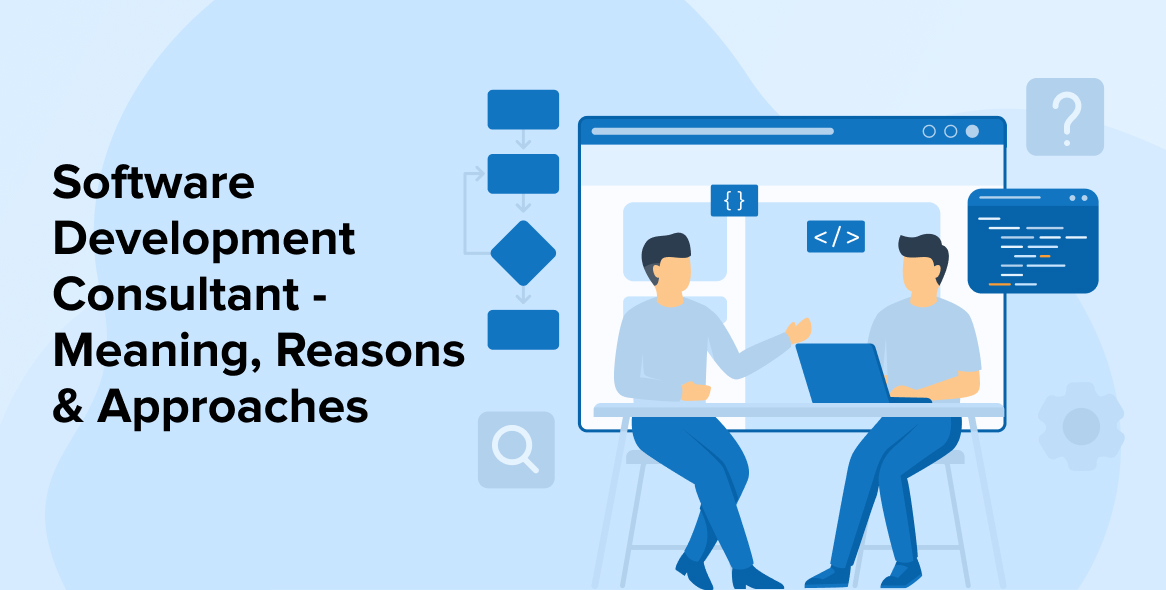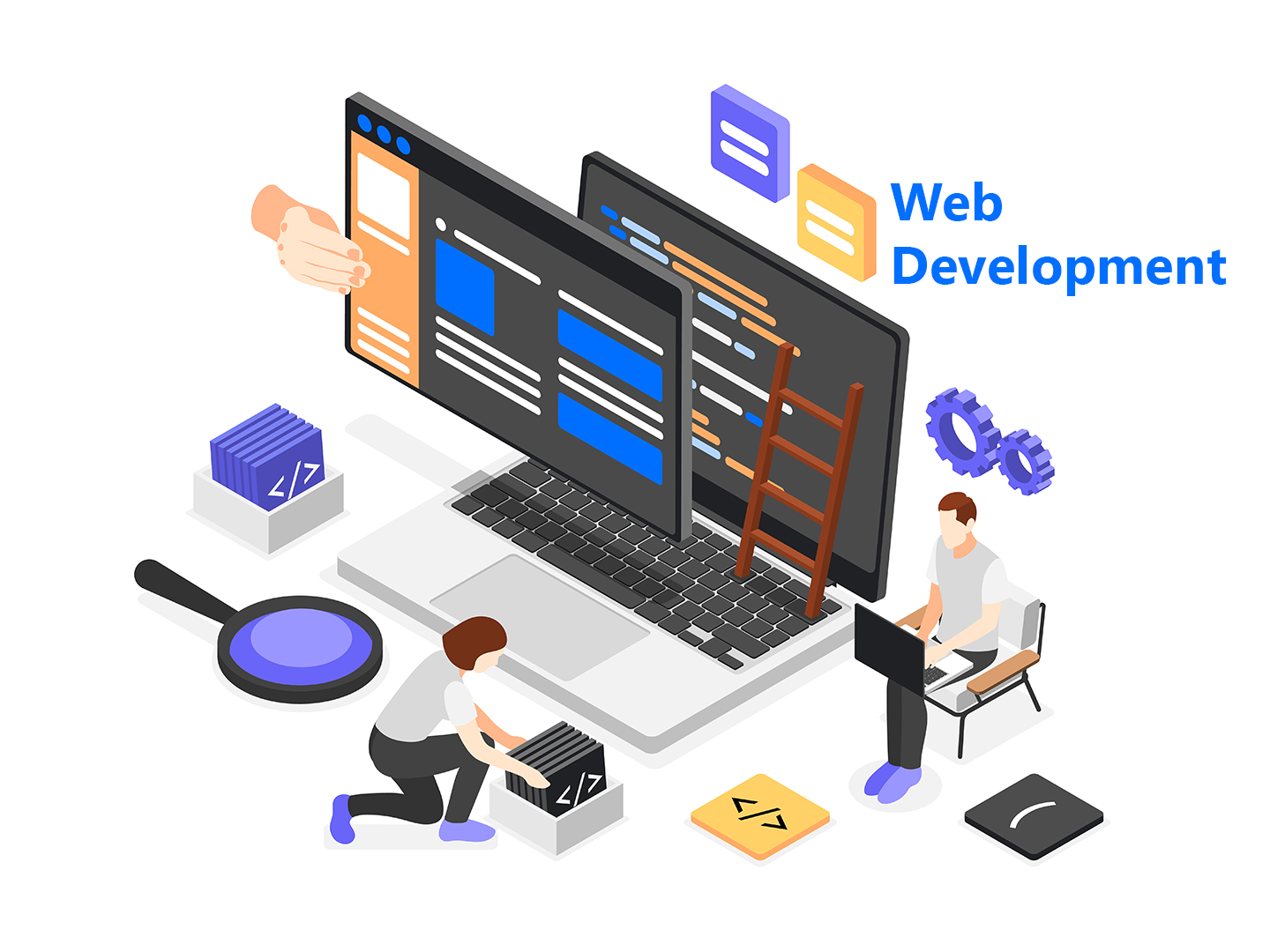
What is a Software Consultant?
In today’s fast-paced digital world, businesses require expert advice to stay competitive and navigate the ever-changing landscape of software technology. This is where the software consultant meaning comes into play. A software consultant is an individual or a firm that provides expert advice on how to use software solutions to achieve business goals, optimize operations, and resolve technical challenges. These consultants specialize in assessing a company's needs, recommending the best software solutions, and overseeing their implementation. They bridge the gap between business goals and technology, ensuring that software applications and systems align perfectly with the company's objectives.
The meaning of a software consultant extends beyond just advice; they provide a comprehensive understanding of how different software tools, platforms, and frameworks can benefit a company. Their expertise spans various areas, including development, integration, customization, and even training. They are crucial to helping businesses make informed decisions about which technologies to adopt and how to implement them efficiently.
Why Do Businesses Need Software Consultants?
In today's competitive business landscape, companies face several challenges, including the need to adopt new technologies quickly, optimize existing systems, and keep up with industry trends. Software consultants are invaluable in helping organizations address these challenges. The software consultant meaning can be understood by exploring the many reasons businesses seek their services:
Expert Advice: Software consultants possess specialized knowledge in software technologies and best practices, making them the go-to experts for businesses looking to implement new systems or improve existing ones.
Cost-Effectiveness: Hiring a full-time software expert can be expensive, especially for small and medium-sized businesses. Software consultants offer a cost-effective solution by providing their expertise on a project or as-needed basis.
Risk Mitigation: Implementing new software without proper guidance can result in costly mistakes. Software consultants help businesses avoid pitfalls by recommending proven solutions and guiding the implementation process.
Focus on Core Business: By outsourcing software consulting, businesses can focus on their core activities while leaving the technical aspects in the hands of professionals.
Key Responsibilities of a Software Consultant
Understanding the software consultant meaning involves looking at their key responsibilities. Software consultants work across various stages of a project to ensure the software aligns with business goals. Their responsibilities typically include:
Needs Assessment: The first step in the consultant’s role is to understand the specific needs of the business. This involves evaluating current systems, understanding pain points, and identifying areas for improvement.
Solution Design: Once the needs are assessed, the consultant recommends software solutions that align with the business’s objectives. This includes selecting the right tools, platforms, and technologies.
Implementation Guidance: Software consultants provide detailed implementation strategies, guiding businesses through the setup, configuration, and integration of the software.
Customization and Development: In many cases, off-the-shelf software needs to be tailored to meet specific business needs. Software consultants may oversee or participate in the customization process to ensure the software fits the business like a glove.
Training and Support: Once the software is in place, the consultant ensures that the team is fully trained to use it effectively. They may also provide ongoing support and troubleshooting.
Continuous Improvement: Technology evolves, and businesses must keep up. Consultants play a crucial role in continuous improvement by recommending upgrades and ensuring the software remains relevant and efficient.
Different Types of Software Consultants
When diving deeper into the software consultant meaning, it’s important to recognize the various types of consultants based on their specialization. Each type focuses on different aspects of software development and implementation:
Technical Software Consultants: These consultants focus on the technical side of software development. They have expertise in coding, frameworks, and technical architectures and are involved in building, customizing, or integrating software solutions.
Functional Software Consultants: Functional consultants focus on how software can improve business processes. They have a deep understanding of specific business domains, such as finance, supply chain, or HR, and ensure that the software supports and enhances these processes.
Enterprise Software Consultants: These consultants specialize in large-scale systems, such as ERP (Enterprise Resource Planning) software. They help organizations implement and manage software that covers multiple departments and functions.
Project Management Consultants: Project management consultants ensure that software projects are completed on time and within budget. They provide guidance on resource allocation, risk management, and task prioritization during software development and deployment.
Skills and Qualifications of a Software Consultant
The software consultant meaning also encompasses the specific skills and qualifications required to excel in this role. A successful software consultant must possess a blend of technical and interpersonal skills, including:
Technical Expertise: A software consultant must have a deep understanding of various programming languages, platforms, and technologies. They need to stay up-to-date with the latest trends and tools in the software industry.
Problem-Solving Abilities: Consultants are often called upon to resolve complex technical challenges. Strong analytical and problem-solving skills are essential for identifying the root cause of problems and finding effective solutions.
Business Acumen: To provide valuable advice, a software consultant must have a solid understanding of business processes and strategies. This allows them to align software solutions with business objectives effectively.
Communication Skills: Consultants must be able to explain complex technical concepts to non-technical stakeholders. Strong verbal and written communication skills are crucial for ensuring everyone is on the same page.
Project Management Skills: Managing software projects requires strong organizational and leadership abilities. Software consultants often need to manage teams, timelines, and budgets to ensure successful project completion.
How to Choose the Right Software Consultant for Your Business
Choosing the right software consultant is crucial for the success of your project. The software consultant meaning extends to finding someone who understands your business needs and can provide the right solutions. Here are key factors to consider when selecting a consultant:
Experience and Expertise: Look for a consultant with a proven track record in your industry. Their experience will ensure that they can handle your specific requirements effectively.
Industry Knowledge: A consultant who understands your business domain can provide more relevant and actionable advice. For example, if you’re in the healthcare industry, a consultant with experience in healthcare software will be a better fit.
Reputation and References: Ask for references or case studies to ensure that the consultant has a history of delivering successful projects. Positive feedback from previous clients is a good indicator of their reliability and expertise.
Cost and Value: While cost is an important factor, focus on the value the consultant brings to the table. A cheaper consultant may not provide the same level of expertise or quality as a more experienced one.
The Benefits of Hiring a Software Consultant
Now that we’ve covered the software consultant meaning, let's explore the benefits of hiring one. Whether you're a small business or a large enterprise, there are several advantages to bringing in a software consultant:
Access to Expertise: Consultants bring specialized knowledge that your in-house team may lack. This expertise can significantly speed up the decision-making and implementation process.
Fresh Perspective: An outside consultant can offer an objective view of your business processes and suggest improvements that you may have overlooked.
Efficiency: Software consultants help streamline operations by recommending and implementing the best software solutions for your needs, which can lead to increased productivity and cost savings.
Risk Reduction: By working with a consultant, you reduce the risk of selecting the wrong software or implementing it incorrectly. Their experience ensures that best practices are followed, reducing the likelihood of costly errors.
Scalability: As your business grows, so do your software needs. A consultant can help ensure that your software is scalable and adaptable to future changes.
Conclusion
The software consultant meaning encompasses a wide range of responsibilities, from providing expert advice to overseeing the implementation of software solutions. These professionals play a pivotal role in helping businesses harness the power of technology to meet their goals and stay competitive in today’s digital landscape. By bringing in a software consultant, companies can leverage specialized expertise, optimize their software systems, and ultimately improve their overall performance.
Whether you’re a small business looking for cost-effective software solutions or a large enterprise seeking to upgrade your systems, a software consultant can guide you through every step of the process. Their role is not just to recommend software but to ensure that it aligns with your business strategy and delivers tangible results.
 Best Mobile App Development Company in Delhi NCR | Oprezo India
Best Mobile App Development Company in Delhi NCR | Oprezo India
 Top Web Development Services in Delhi/NCR | Oprezo India – React JS, Angular JS, eCommerce & More
Top Web Development Services in Delhi/NCR | Oprezo India – React JS, Angular JS, eCommerce & More
 Top Mobile App Development Company in Delhi / NCR | Oprezo India
Top Mobile App Development Company in Delhi / NCR | Oprezo India
 Mobile App Development in Delhi - Android, iOS, Hybrid & Flutter | Oprezo India
Mobile App Development in Delhi - Android, iOS, Hybrid & Flutter | Oprezo India
 Why Oprezo India is the Best Web Development Partner in Delhi NCR?
Why Oprezo India is the Best Web Development Partner in Delhi NCR?